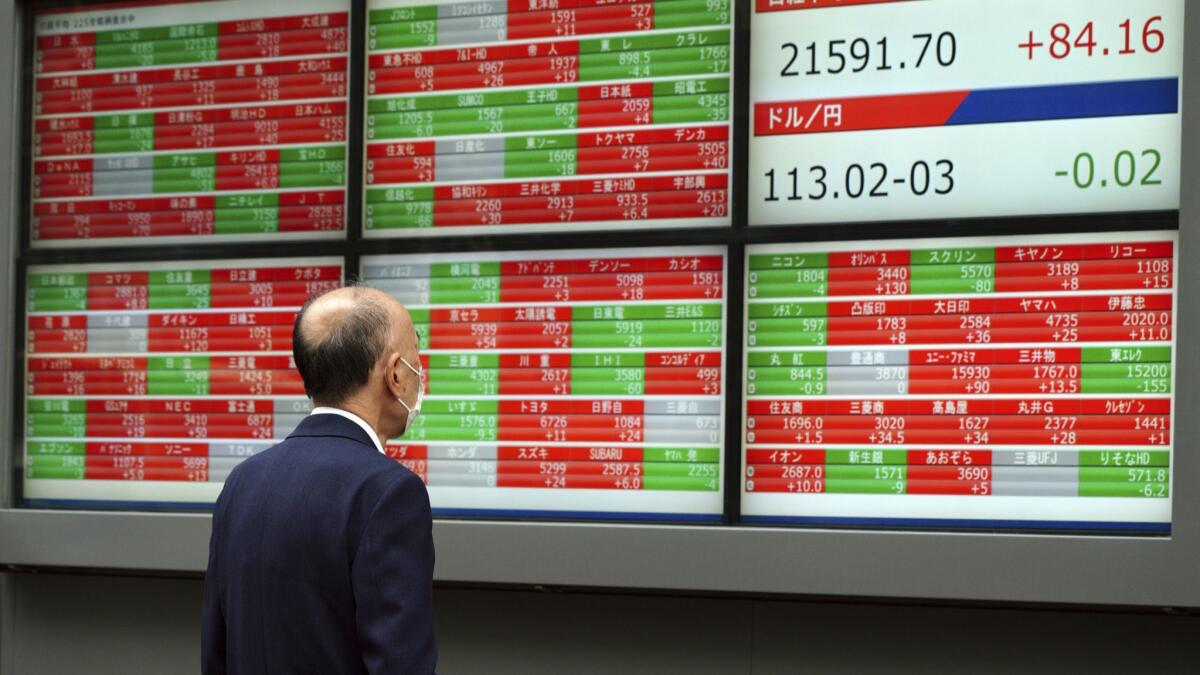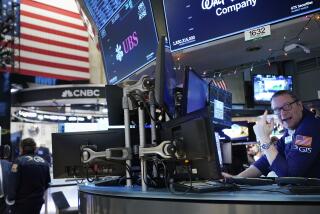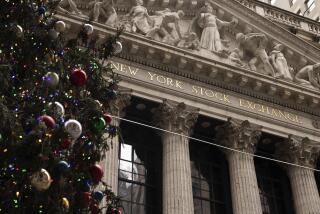Stocks slip in Europe, Asia as U.S. markets take Thanksgiving off

U.S. equity futures dropped alongside European stocks on Thursday in a subdued day of trading thanks to the American Thanksgiving holiday. The pound jumped and the euro strengthened after Britain and the European Union had a breakthrough over the Brexit deal.
U.S. markets were closed for the holiday and will be open for only a half-day on Friday.
The Stoxx Europe 600 Index gave up a chunk of Wednesday’s advance as almost every sector fell, though trading volume was 25% below the 30-day average and the gauge finished above its lows on the day.
Germany’s DAX index dropped 0.9% to close at 11,138.49, and the CAC 40 in France shed 0.8% to 4,938.14. Britain’s FTSE 100 index lost 1.3% to 6,960.32.
The pound rose sharply after Britain and the European Union reached a deal in principle on future relations. The deal is due to be approved by EU leaders on Sunday but still faces uncertain prospect of passing the British Parliament, where many lawmakers are unhappy with the terms. The deal aims to minimize the damage to business from Brexit by agreeing to negotiate a free trade deal.
Asian equity benchmarks swung between gains and losses before turning higher, with Japanese stocks getting an end-of-session boost on a report about a possible government rebate. Trading volumes in the region were also depressed.
Japan’s benchmark Nikkei 225 closed 0.7% higher at 21,646.55, and the Hang Seng in Hong Kong added 0.2% to 26,019.41. South Korea’s Kospi dropped 0.3% to 2,069.95. The Shanghai Composite shed 0.2% to 2,645.43. Australia’s S&P/ASX 200 gained 0.9% to 5,691.30. Shares fell in Taiwan and Thailand but rose in Singapore.
Investor sentiment remains fragile following the volatility that’s rocked markets since October, wiping out many equity gains for the year. Traders are having to contend with the White House’s protectionism and President Donald Trump’s calls for the Fed to back off from raising rates, as well as corporate credit markets playing catch-up to the broader risk sell-off.
Economic figures in the U.S. have raised further concerns about the effects of ongoing trade disputes. Durable goods orders fell 4.4% last month from September, the largest amount in 15 months, with commercial and military aircraft leading the decline.
Experts say this could point to adverse effects of a trade dispute between the U.S. and China, who have imposed additional tariffs on billions of dollars of each other’s goods. The issue adds to others on the minds of investors, including the profitability of the technology sector and the impact of higher interest rates on the economy.
“Basically the same issues — higher U.S. rates, trade, tech correction and fears of its morphing into weaker global growth — are continuing to keep investors on edge,” said Shane Oliver, head of investment strategy and chief economist at AMP Capital.
Traders are also keeping an eye on oil prices, which fell sharply this week on the prospect of high supplies from major producers like the U.S. and Saudi Arabia. Benchmark U.S. crude lost 51 cents to $54.12 per barrel in electronic trading on the New York Mercantile Exchange. The contract gained $1.20 to close at $54.63 in New York. Brent crude, the international standard, shed 32 cents to $63.16. It finished 95 cents higher at $63.48 in London.
The dollar weakened to 112.99 yen from 113.07 yen late Wednesday. The euro rose to $1.1402 from $1.1383 and the pound rose to $1.2866 from $.12776.
UPDATES:
1:20 p.m.: This article was updated with additional analysis.
This article was originally published at 11:50 a.m.






